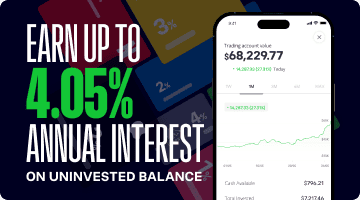Breaking the Comparison Trap: Jessie Leong on Why Your Financial Journey Is Never "Apples to Apples"
For writer and How I Fund This founder Jessie Leong, the hardest step wasn't learning the jargon,...
Is financial services’ obsession with ‘confidence gap’ putting women off investing?
The financial industry has long pushed a lazy myth: that women don't invest because they "lack...
eToro EU Authorized Under MiCA to Offer Crypto Services in Germany
We're pleased to share that eToro Europe Ltd. (eToro EU) is now authorized to offer cryptoasset...
Retail investors pivot back to US amid renewed market confidence
Confidence in US long-term potential rises after two quarters of decline
Magnificent 7...
World class starts with your UAE PASS
When it comes to where to invest your money, trust is everything. That’s why eToro, one of the...
eToro is now a publicly traded company
As CEO and Co-founder of eToro, I’m incredibly proud to share with you that today eToro became a...
eToro launches a PER and life insurance offer in France in partnership with Generali
Paris, 13 May 2025 - eToro, the trading and investing platform, announces today a partnership with...
Fear vs optimism: the top emotions driving retail investors' decisions
Fear of loss (43%) and optimism (31%) are the top emotional drivers steering retail investor...
Recurring Investments: A simpler way to help grow your portfolio
Ever wish you could set your investments on autopilot? eToro’s new Recurring Investments feature...
Invest in AI’s Future — With 100% Capital Protection
AI is reshaping our world — don’t just watch it happen. With eToro’s AI-Edge Smart Portfolio, you...



